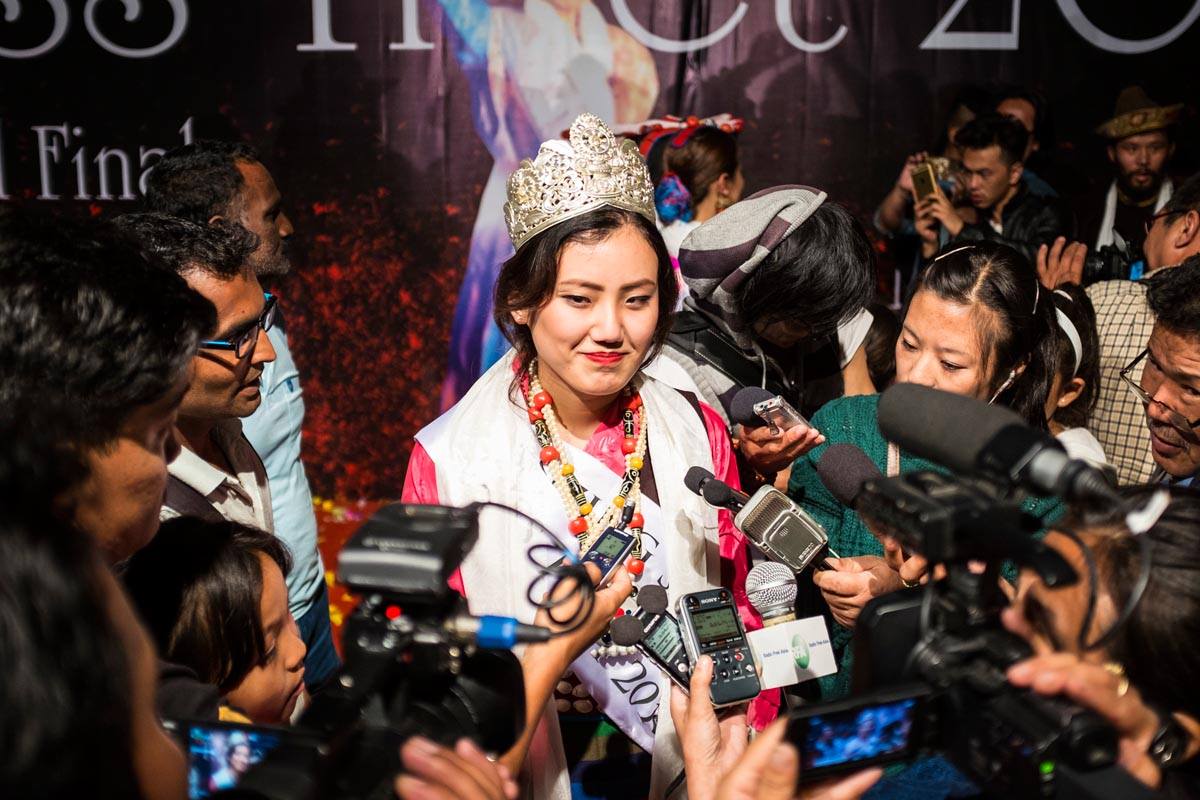Dramatic debate has followed the recent enthroning of the new Miss Tibet. As soon as the crown was placed on 21 year-old Tenzing Sangnyi’s head, people took to the internet to express their opinions on her looks, body, and even more vehemently, her fluency in Tibetan.
“It’s shameful,” Phurbu Tralsar Chorion posted on social media site Facebook, while another user stated: “It is okay an exiled girl doesn’t speak Tibetan (forget about writing) although she spent her entire life in the Tibetan refugee community (because many youth in exile has this ‘I don’t care mentality’) but it is not okay when it comes to a ‘Miss Tibet’ who claims herself as a ‘cultural ambassador.'”
The nursing student grew up in a small Tibetan exile community in Manali, however during the competition her grasp of her native tongue was shown to be extremely weak. Doubts have since surfaced as to whether she can be as deeply passionate about her country as others when learning her own language has taken such a back seat.
Scrutiny has always gone hand in hand with victory in the competition. Last year’s winner, Pema Choedon, 25, is no stranger to being judged: “You should not be wearing ripped jeans,” one stranger spat at her recently. In retaliation Miss Choedon is using her title to bolster her role in the emerging wave of feminism within the community. “Tibetan women fear being judged so much, they never come on stage. What they require are not just platforms but role models,” she said.
Tenzing Sangnyi too wants to make the most of her new found influence, encouraging young women to pursue education. But as local website manager, Sangay Dorjee asked: “How will she be able to use her station for good when she does not have an understanding of Tibetan?”
The debate continues to rage online, those defending Miss Sangnyi proving themselves equally passionate. “How can you expect a child to know the importance of preserving one’s language?” one person asked. “By the time our children grow up to understand the importance of language and begin to make an effort to come back into the culture, they face non-constructive criticism from people who are more interested in shaming them than in asking questions of our own community. Where have the elders failed in transmitting language?”
Many have agreed that in being so quick to point the finger at Miss Tibet, Tibetans fail to accept that it is both a community-wide problem, and a community-wide responsibility. Tsering Choedon posted her view on Facebook that “it’s not only her fault but largely the failure of her parents, teachers and all those responsible who couldn’t be good role models for her in promoting a conducive environment for speaking good Tibetan. It’s sad but this is the fact of the matter in many of our youngsters today. This episode is a grim reminder for all of us to take charge of the deteriorating situation of our language.”
Miss Tibet herself has spoken out in her own defense. While assuring everyone of her determination to improve her mother tongue she stated: “I am confident that my shortcomings in language do not make me any less of a Tibetan. I am more determined than ever to do something for my country. I request all Tibetans to stand as one and stop bullying anyone for their colour, appearance, or speech. Instead, encourage them and help them overcome their shortcomings.”
Tenzing Sangnyi has sparked a debate that runs much deeper than the Miss Tibet contest; a debate about what it truly means to be Tibetan, and how to carry that inherent “Tibetaness” forward into a future that may not include a return to the land of snow. It is a crucial question, and one which must be addressed by all those living in exile.





 Print
Print Email
Email